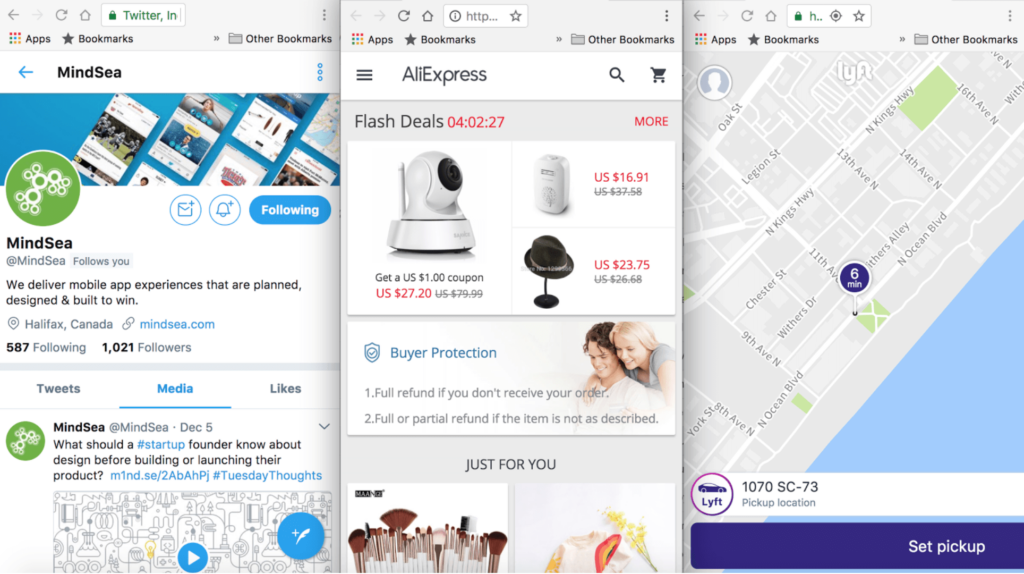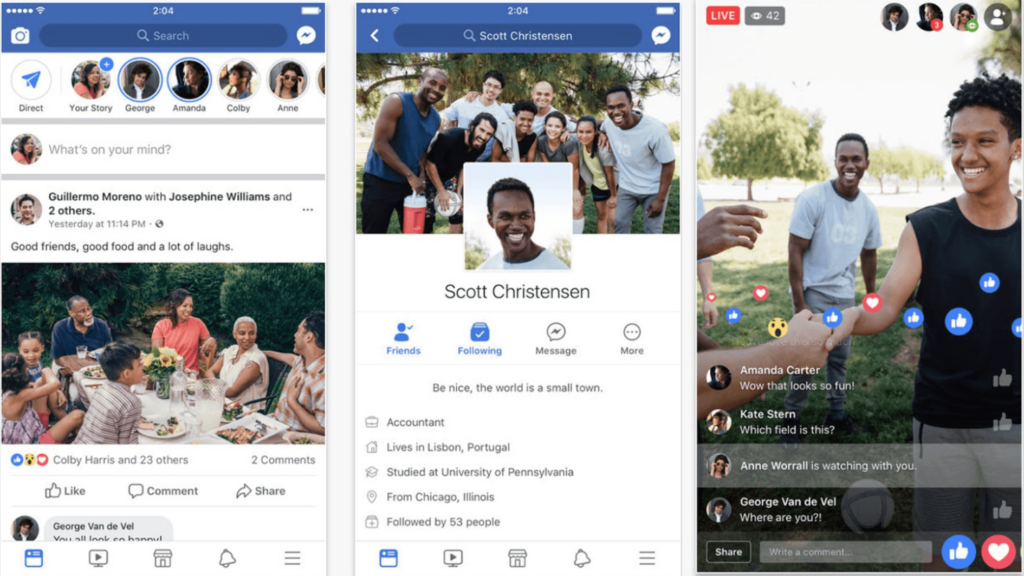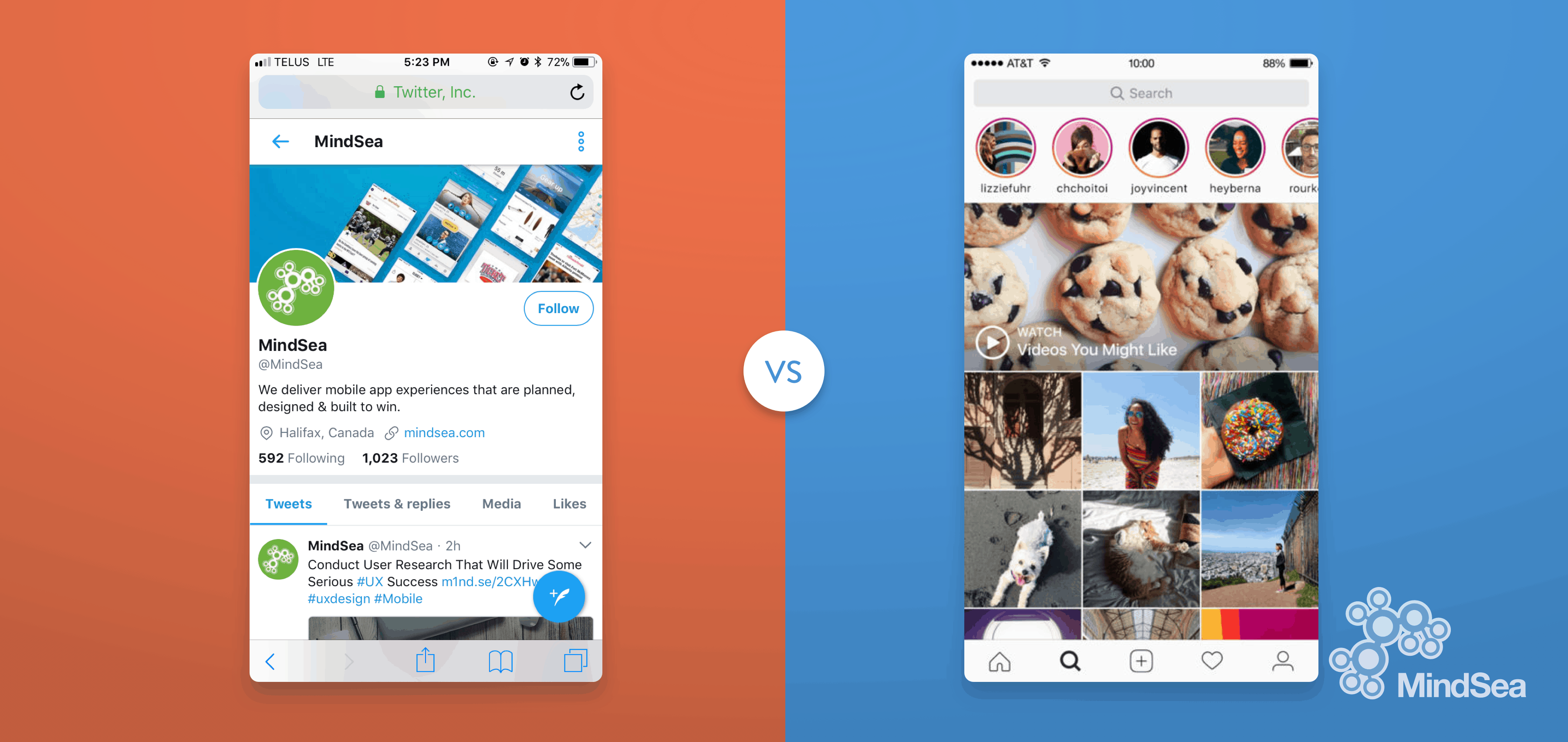So you’re ready to build a mobile app for your SaaS company?
You’ve read all the stats about what an app can do, you’ve looked into what you’ll need resource-wise. The only question now is what kind of app are you actually going to create?
The good news: You’ve got options.
In the mobile app world, there are three primary app categories:
- Web Based
- Native
- Hybrid
Each has its benefits … and its drawbacks. If you don’t know much about the various types of apps, you will by the time you finish reading this post.
We want to guide you, SaaS founder, through the waters of app development. So we’ve identified five questions SaaS founders should ask as they decide which kind of app to pursue.
Every question will help you gauge what’s best for your business and your customers. After all, your app should reflect both your company’s goals and your users’ goals.
Let’s get to it.
1. Web Apps vs Hybrid Apps & Native Apps — what are they?
Before you can decide which kind of app is right for you and your SaaS product, you need to have a solid understanding of each type. You don’t need to be an expert on apps, but knowing the differences between the three kinds is key to choosing the best option for your business.
Mobile Web Apps
A web app is exactly what it sounds like: an application that users can access over the web through their internet browser. It isn’t a standalone app that you download, so it doesn’t take up any storage space or memory on your device.
The benefit here is that users just have to open Chrome or Safari and load the webpage, and they’re all set. On the flip side, relying on the internet leaves the application susceptible to poor performance—if the browser or Wi-Fi is not working, your app won’t either.
Some examples of this kind of app are Lyft, Twitter, and AliExpress.

While these sites are fully functional in the browser; the brands still have Native Apps available for download. The reality is that most people are still going to look to the App Store to find Uber, Lyft, Twitter or any popular product that would be worth using on the go. Thus, creating a native app is still a key priority for major brands and up and coming startups.
Native Mobile Apps

Native apps are what you typically think of when you hear the word “app”.
There are too many examples to count, but think Instagram, Facebook Messenger, Shazam, Twitter, Pokemon Go, Coinbase, Spotify and the list could go on and on…
They’re the mobile apps that you download to your device and use all the time.
The actual development can differ between iOS apps, Android apps and Windows apps, but the benefits of native apps are generally the same across the board: They’re fast and reliable, they give you a ton of freedom when it comes to functionality, and the UX/UI is adjustable based on the device the app is downloaded on.
Of all the various types of mobile apps, there’s no question that a native app is one of the most effective ways to add value.
Mobile Hybrid Apps
As I’m sure you’ve guessed, hybrid apps are a mix of the two.
A hybrid app appears as a native app that can be downloaded by a user, but it’s actually a web app wrapped in a native app’s clothing. It runs on a browser but has some of a native app’s UI capabilities.
Hybrid apps are useful for testing purposes and for shipping quickly to users. If you have a fantastic idea for an app but don’t want to invest thousands of dollars before verifying the idea, a hybrid app could be the quick solution you need.
Of course, a hybrid app’s performance doesn’t rival that of a true native app, and the functionality may take a hit, but going hybrid can be an efficient and cost-effective method for testing interest levels.
2. Which App Experience Is Better For Your Users?
The people using your app need to be top of mind when you’re making decisions about your approach to mobile. So it’s important to invest the time and energy up front to understand their needs and wants.
Would your users be open to downloading an app, or do they want an experience that lives on a browser?
Are there key features your users want that might perform better on a hybrid app?
One great way to better understand what users want is to study analytics. We rely on a variety of web and mobile analytics tools to understand how people behave. Are more people visiting the site on their desktop than on mobile? Do we have more mobile site visits than we have mobile app downloads today? Insights like these can help guide your decision.
3. What App Offers The Best Performance?
Naturally, you want your app to perform at its best. After all, great performance is critical for a positive user experience, and a positive user experience is key to delighting users, and delighted users are more likely to become promoters for your app.
In other words, an app with great performance can directly lead to user and customer growth.
So which type of app offers the best performance?
To put it simply, native apps usually perform better than hybrid and web apps.
Since hybrid and web apps both live in a browser, their performance depends on what the browser is capable of. If Google Chrome is having an off day, your app’s going to suffer.
Native apps, on the other hand, don’t depend on a browser—they function independently. Even if Google Chrome is acting up, your app will still perform in tip-top shape.
4. What Type Of App Development Do You Have The Resources For?
Of course, the price tag is a contributing factor in your decision.
What will an app cost you, and which type will work best for your budget?
It all depends on what you’re looking for in your app and what percentage of the app build you can do without outsourcing. In general, the more complex your app, the longer it will take to create, and the more you’ll pay.
We’ve put together a great resource highlighting the ins and outs of what goes into the cost of a mobile app.
Think of the price tag as an investment in the future success of your SaaS company.
5. Should You Outsource App Development Or DIY?
Ah, a familiar dilemma—for apps and otherwise.
Should you outsource the creation of your app to an agency so your development team can stay focused on other projects, or do you reallocate resources to form an in-house app creation team?
At the end of the day, it comes down to the resources you have available.
Can you afford to pull a handful of developers from the work they’re doing to keep the company running smoothly? Should you shell out to hire a few more in-house developers? Are you better off allocating part of your budget toward hiring an agency and letting your team work uninterrupted?
If you can afford to create your app in-house, that might be the best course of action. For most early-stage SaaS companies, though, resources are tight. The better option may be outsourcing so your team can remain focused on the things that have brought your business to where it is today.
To outsource or not to outsource is definitely a big decision for you and your SaaS startup, so we put together a great free resource to help you navigate it. Check out the guide and feel free to reach out if you’re looking for more advice.
Now It’s Your Turn
As you’ve learned, each type of app has its own benefits, so the direction you take will depend on your SaaS company’s goals.
If you’re ready to take the next step and start building your app, get in touch with us today. We’ll walk you through the entire process and get you on the path to accomplishing your company’s mobile goals.
What other questions do you think are important to ask before choosing the right kind of app for your company? Leave a comment and let us know!



